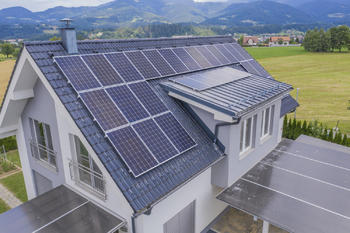The Different Types of Investment Property
and Their Pros and Cons
Investing in real estate has long been a popular avenue for building wealth and generating passive income. However, the diverse landscape of investment properties presents potential investors with a multitude of options to consider. Each type of investment property comes with its own set of pros and cons, which must be weighed carefully to make an informed decision. Here, we will explore the various types of investment properties, analyse their advantages and disadvantages, share some tips for choosing, and conclude with a spotlight on the potential of a Canberra investment property.
#1 Residential Rental Properties
Residential rental properties, such as single-family homes, condos, and apartment buildings, offer a steady stream of rental income. They tend to be more accessible for beginner investors and provide a relatively stable cash flow. However, turnover rates, property management, and maintenance costs can impact profitability.
#2 Commercial Real Estate
Commercial properties like office spaces, retail centres, and industrial complexes can yield higher rental incomes and longer lease terms. The main drawback is the potential for longer vacancies and the need for in-depth market knowledge to attract suitable tenants.
#3 Vacation Rentals
Vacation rentals through platforms like Airbnb have gained popularity for their potential for high short-term rental income. However, they often require more hands-on management and can be affected by seasonal fluctuations in demand.
#4 Real Estate Investment Trusts (REITs)
REITs provide an opportunity to invest in real estate without direct ownership of properties. They offer liquidity, diversification, and access to various property types. Nevertheless, they are subject to market volatility and may have management fees.
#5 Fixer-Uppers
Investors can buy distressed properties at a lower cost, renovate them, and sell for a profit. This strategy requires extensive research, renovation costs, and a tolerance for unexpected challenges.
#6 Raw Land
Investing in undeveloped land has the potential for significant appreciation, but it lacks immediate income. Development timelines, zoning regulations, and holding costs should be carefully considered.
#7 Multi-Family Properties
Multi-family properties like duplexes and triplexes offer a balance between residential and commercial investments. They provide multiple income streams, but property management complexities can arise with more tenants.
Each type of investment property has its own set of advantages and challenges, and the right choice depends on an investor's risk tolerance, financial goals, and expertise.
How to Choose an Investment Property: Key Factors to Consider
Choosing the right investment property requires careful consideration of several key factors. Firstly, define your investment goals: are you seeking rental income, property appreciation, or a mix of both? Research the local market thoroughly, evaluating trends in property values, rental rates, and demand. Location plays a pivotal role; proximity to amenities, schools, transportation, and job centres can influence the property's appeal to potential tenants or buyers.
Financial feasibility is crucial. Calculate all costs, including purchase price, financing, property management, maintenance, and taxes. Compare these expenses against potential income to ensure a positive cash flow. Assess the property's condition and potential for improvements; fixer-uppers may offer value if renovation costs align with potential returns. Additionally, consider the level of involvement you are willing to commit for property management.
Lastly, consult with professionals to gain insights and expertise. A systematic approach that integrates these factors will guide you toward a well-informed decision when choosing an investment property.
Best Time to Invest in Canberra Property
As the capital city of Australia, Canberra boasts a stable economy, low unemployment rates, and a strong rental market. The presence of government institutions and educational centres contributes to a consistent demand for rental properties. Additionally, the city's planned urban development and infrastructure projects offer the promise of property appreciation over time.
Navigating the world of investment properties requires a comprehensive understanding of the different property types and their associated pros and cons. Making an informed decision involves considering factors such as rental income potential, property management demands, market trends, and personal investment goals. For those interested in a stable and promising investment opportunity, exploring a Canberra investment property could prove to be a prudent choice in the dynamic real estate landscape.
Most recent blog articles
The Right Time to Buy a Property in Canberra: 8 Important Reminders
Buying your first property is an exciting venture, but it's essential to proceed with caution and avoid potential pitfalls
Read MoreHow a Sustainable Property Can Help Reduce Your Utility Bills
By opting for a sustainable lifestyle, you not only secure your financial future but also play a crucial role in creating a greener and more sustainable environment
Read MoreProperty Purchasing Tips for Growing Families: Top 5 Qualities of a Start-Up Home
We will explore the top five qualities of a start-up home for growing families to ensure a smooth transition into a space that fosters happiness and harmony.
Read More10 Benefits of Renting Out Your Property: Becoming a Landlord
The idea of being a landlord might seem daunting at first, but with proper planning and understanding, it can offer numerous benefits and financial opportunities.
Read More7 Ways Buyers Agents Can Change Your Home Buying Journey for the Better
A buyer's agent assists the buyer in finding suitable properties, negotiating offers, and guiding them through the complexities of the real estate transaction, aiming to secure the best deal possible.
Read More5 Housing Trends to Take Note of in the Second Half of 2023
The second half of 2023 promises to be an exciting period in the housing market, with various trends shaping the industry's trajectory
Read More







